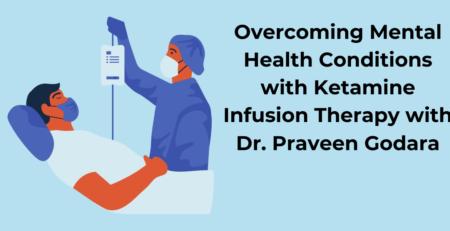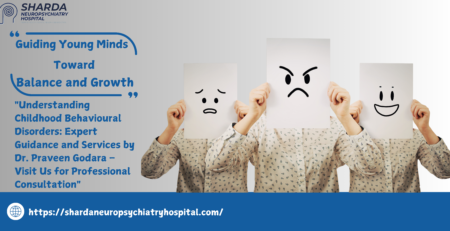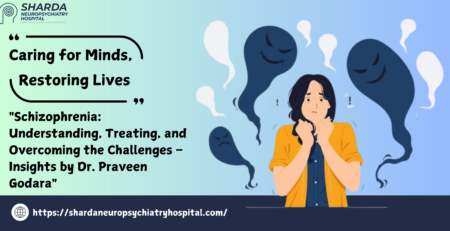Empowering Parents to Protect Teens: Understanding Suicide and Support
Dr. Praveen Godara emphasizes that parents can approach suicide prevention much like they address other health or safety concerns for their children. By gaining the right knowledge, parents can better understand the factors that heighten the risk of suicide and identify the protective measures that offer the strongest support.
Should Parents Be Concerned About Teen Suicide?
Dr. Praveen Godara highlights that suicide among teens is a growing issue, frequently discussed in the news and portrayed in popular media. As a parent, you have a vital role in supporting your child’s mental health. By recognizing the risk factors and warning signs of suicide, being present and approachable, engaging in empathetic and caring conversations, and understanding that professional help is always available, you can make a meaningful difference in your child’s well-being. Your awareness and support can be life-changing.
How Can I Help Protect My Teen or Tween From Suicide Risk?
Dr. Praveen Godara advises parents to teach and model healthy habits for mental well-being, just as they do for physical health. Prioritizing your own mental health, discussing it openly, and seeking therapy when needed can set a powerful example for your child.
When children see you face challenges and learn from mistakes in an open and honest way, they begin to understand that it’s okay to struggle and grow. This helps them build resilience, compassion for their own missteps, and empathy for others. It also normalizes the understanding that life can be challenging and unpredictable for everyone at times.
Dr. Godara recommends checking in with your child regularly, beyond the routine of daily tasks like homework. Inviting deeper conversations can foster trust and connection. Guidance on how to approach these discussions is available on this page.
For children with a history of depression, anxiety, suicidal thoughts, self-harm, or substance use, Dr. Godara emphasizes closer monitoring and seeking professional support when needed, whether during critical periods or for ongoing care in chronic conditions
How Can I Tell If My Child’s Behavior Is Normal Teenage Moodiness or Something More Serious?
Dr. Praveen Godara explains that during puberty, changes in a child’s body and brain often lead to behavioral shifts, such as moodiness, irritability, and distancing themselves from parents. These are typically part of normal adolescent development. However, parents should be concerned if they observe signs of hopelessness, worthlessness, withdrawal from friends or activities, or thoughts and behaviors related to suicide—these are not typical aspects of teenage angst.
Dr. Godara advises parents to trust their instincts. You know your child’s usual patterns of behavior, how they react to frustration and challenges, and what their good and bad days look like. If their behavior seems to go beyond these norms, it may indicate deeper physical or mental health issues.
Engaging your child in open, compassionate conversation is essential. It helps you understand what they are experiencing and gauge the severity of their struggles. If your teen or tween’s sleep, energy, appetite, motivation, or ability to handle frustration does not return to normal within a few days, Dr. Godara strongly recommends consulting a GP or mental health professional to ensure they receive the appropriate support.
How to Talk to Your Teen About Mental Health and Suicide
It’s vital to approach conversations about mental health and suicide with sensitivity and care. As a parent, don’t shy away from these difficult topics. Start by simply asking your teen, “How are you really doing?” or “Is there anything on your mind that you’d like to talk about?” This opens the door for a conversation without feeling forced.
When they share, listen deeply and without judgment. Resist the urge to immediately offer solutions. Instead, focus on understanding their emotions and perspective. Ask open-ended questions like, “What’s been going on that’s been tough for you lately?” or “Can you tell me more about how that made you feel?” These questions help your teen reflect and share more about their experiences.
It’s important to validate their feelings. Even if you don’t fully understand what they’re going through, acknowledging their emotions can make a huge difference. You might say something like, “I can see this is really weighing on you,” or “That sounds really difficult.”
Keep the lines of communication open, but don’t pressure them to talk before they’re ready. Let them know that you are always available to listen, without judgment. Reassure them that their mental health matters and that it’s okay to ask for help when they need it.
By creating an environment where your teen feels heard, supported, and understood, you are helping them feel less alone in their struggles. Let them know they can turn to you with anything, no matter how tough it may seem.
Approaching Conversations About Mental Health Across Different Age Groups
When it comes to discussing mental health and suicide, the approach should vary slightly depending on your child’s age group, but the core principles remain the same. At Sharda Neuropsychiatry Hospital, we emphasize the importance of adapting your language to suit your child’s developmental stage and level of self-awareness.
For younger children (ages 8 to 12), you may want to focus on how they’re feeling physically and emotionally. Ask about things like stomachaches, headaches, or if they’ve been feeling upset or angry more often. If you notice signs that they seem overwhelmed, hopeless, or trapped, it’s important to ask direct questions, such as, “Have you ever thought about hurting yourself or ending your life?” This helps open the door for them to express difficult emotions in a safe and non-judgmental space.
For older children and teens (ages 13 to 17), their level of emotional awareness typically increases, so the conversation can dive deeper into their perceptions and emotional struggles. At this age, they might experience mood swings, sleep disturbances, feelings of hopelessness, or a sense of being trapped. You can approach the topic by asking about these feelings: “Have you been feeling really down lately?” or “Have you been finding it hard to sleep or concentrate?” It’s important to explore their thoughts and listen attentively to their concerns, offering your support without judgment.
At Sharda Neuropsychiatry Hospital, we encourage parents to maintain an open line of communication with their children, tailoring the conversation to their age and emotional maturity. By using appropriate language and creating a supportive environment, you can help your child feel heard and understood, ensuring they know they’re not alone.
- Dr. Praveen Godara
Sharda Neuropsychiatry Hospital
What to Do If Your Child Is Not Ready to Talk?
If your child isn’t ready to talk, it’s important to leave the door open for future conversations. Gently reassure them by saying, “Whenever you’re ready to talk, I’m here to listen and support you,” and “I won’t judge you, and I’ll always be here, no matter what challenges you face.”
Often, your child may open up when you least expect it. This might happen while you’re side-by-side, engaged in an activity, or even in a casual setting like the car. These moments can feel less intimidating, making it easier for them to express their thoughts.
When your teen starts to open up, be careful not to immediately offer solutions or say things like, “You should…” or “Why didn’t you…?” Instead, focus on listening and providing understanding. Your role is to offer support and patience, allowing them to share their feelings on their own terms.
What If I’m Concerned My Child Is Thinking About Suicide?
If you’re concerned that your child might be struggling with suicidal thoughts, it’s crucial to address your concerns directly. Don’t hesitate to ask them if they’re experiencing mood changes, increased stress, or having thoughts of suicide. Asking your child about suicide won’t increase their risk or plant the idea—it opens the door for you to offer support and let them know that you care deeply enough to have this important conversation.
You could say, “It sounds like you’ve been going through a lot lately. Has it ever felt so tough that you thought about ending your life?”
If your child indicates they’ve been thinking about suicide, take their feelings seriously. Listen to them attentively, and continue to offer care and support. You can say things like, “Can you tell me more about what you’re going through? I’m really sorry you’re feeling this way, and I want to understand more about how it’s affecting you. I’m here for you, no matter what. There’s no problem too big that we can’t get through together. I’ll keep supporting you, and we’ll make sure you get the help you need to feel like yourself again.”
It’s essential to talk about the importance of seeking professional help, especially if you believe your child may be at immediate risk. Reassure them that you’re there for them unconditionally, and you’ll ensure they get the support they need to navigate through this difficult time.








Leave a Reply